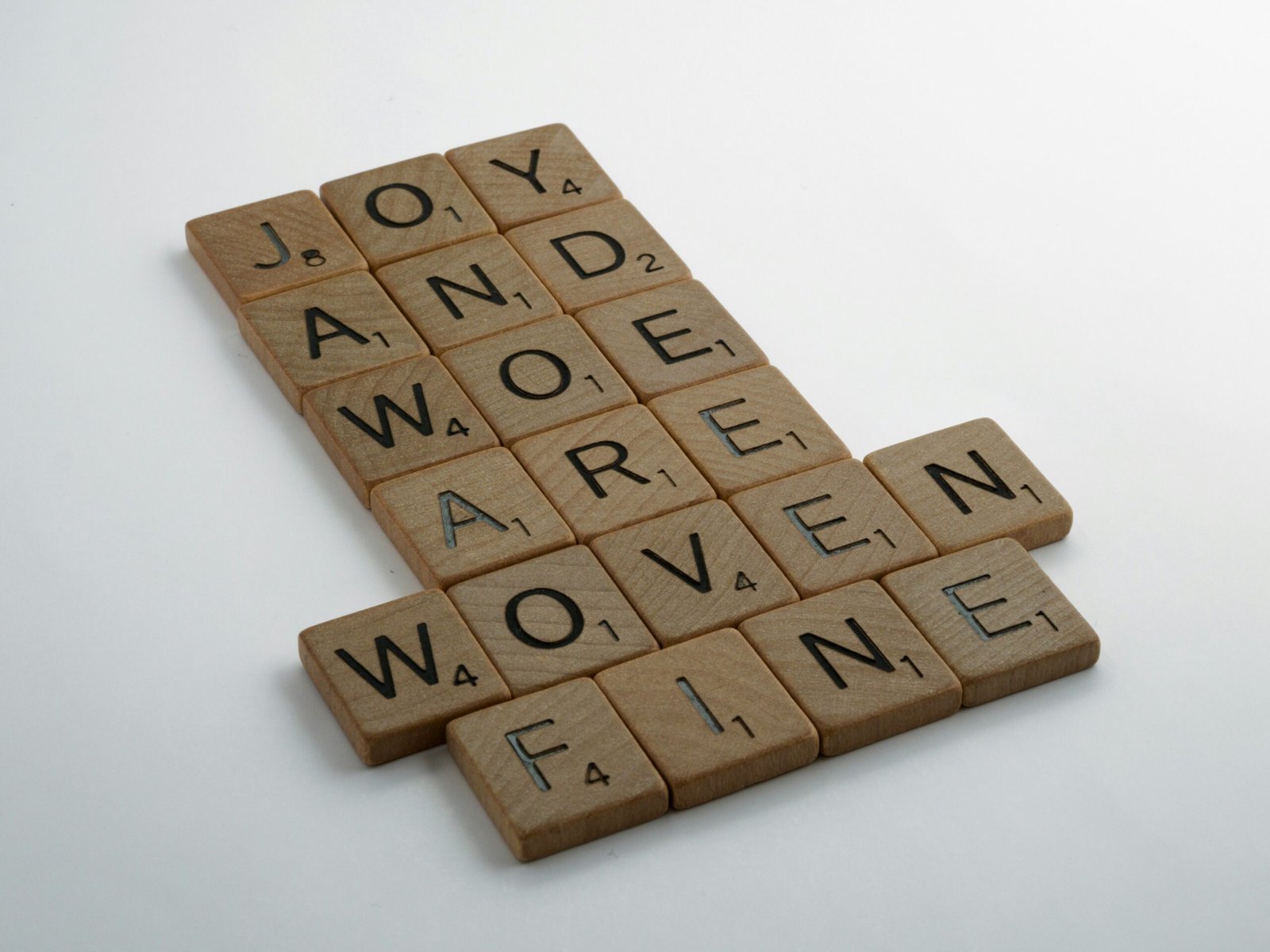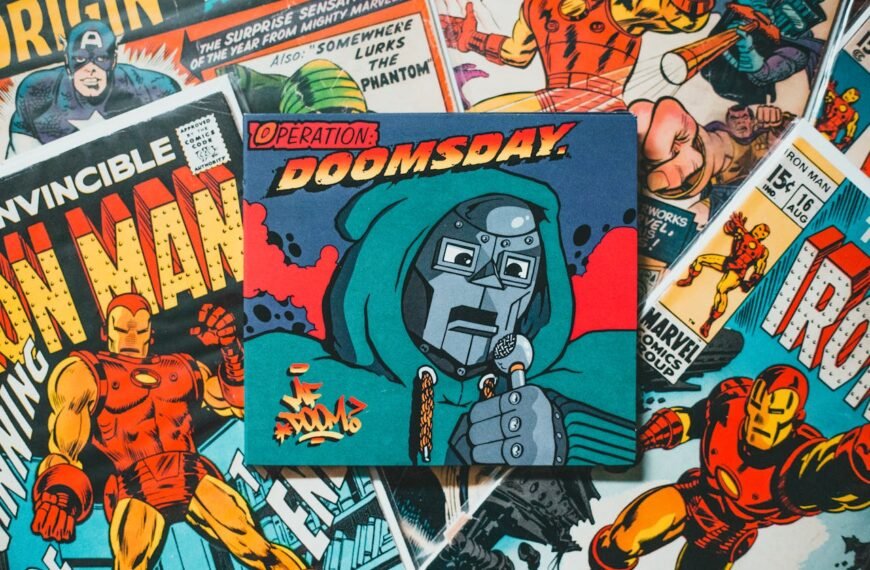Introduction to 5-Letter Words Ending in ‘ash’
In the realm of word games such as Scrabble and Words With Friends, an extensive vocabulary is crucial to maximizing scoring potential and enhancing gameplay strategies. Among the various categorizations of words, 5-letter words ending in ‘ash’ hold significant value for players. These specific words can be particularly advantageous due to their structure and unique letter combinations, making them desirable options during play.
Knowing a variety of 5-letter words ending in ‘ash’ can provide players with essential advantages when navigating the complexities of word placement and scoring. The strategic deployment of these words can lead to high scoring combinations, especially when paired with premium squares on the game board. For instance, positioning a word that ends in ‘ash’ on a double or triple letter score can amplify points significantly, thereby advancing a player’s position in the game.
Moreover, recognizing these words enhances a player’s ability to formulate effective strategies. As word games emphasize not only vocabulary but also tactical moves, being familiar with 5-letter words ending in ‘ash’ allows for versatile placements on the board. This knowledge can enable players to create hooks or build off existing words, opening up opportunities for additional plays in subsequent turns.
Furthermore, the memorable nature of such words often facilitates easier recall under pressure during gameplay, which can be instrumental in competitive scenarios. Players who grasp the importance of these words and incorporate them into their vocabulary are likely to experience increased success in word-based games. Thus, understanding and utilizing 5-letter words ending in ‘ash’ can significantly impact both the enjoyment and competitiveness of word games.
Using Word Finder Tools
In the realm of word games and puzzles, players often seek effective strategies to enhance their gameplay. One such strategy involves the use of online tools, specifically word finder applications, to assist in discovering valuable words. The Word Finder by WordTips is an exemplary tool that aids players in identifying 5-letter words that conclude with ‘ash.’ This tool is particularly beneficial for those engaged in games such as Scrabble, Words With Friends, or similar word-based challenges.
The Word Finder provides users with a streamlined interface, allowing them to input specific criteria, including the desired letter count and ending letters. By selecting the parameter for words ending with ‘ash,’ players are presented with an array of options that can significantly improve their chances of winning. One notable feature of this tool is its ability to sort words based on their point values. This functionality is critical for strategic selections, enabling players to prioritize high-scoring words over others.
Additionally, the Word Finder accommodates diverse players’ needs by offering synonyms and variants of the target words. This can expand a player’s vocabulary and introduce them to less common but equally valuable words that fit their game criteria. Moreover, the user-friendly design encourages players of all skill levels to utilize the tool without feeling overwhelmed by technical jargon.
In conclusion, utilizing online word finder tools such as the Word Finder by WordTips is an effective method for discovering 5-letter words that end with ‘ash.’ The ability to sort by point values provides a strategic advantage, allowing players to maximize their scoring potential and enhance overall gameplay experience. With the support of such resources, players can confidently navigate word challenges and increase their chances of success.
Wordle and its Variants
Wordle has become a cornerstone of the word puzzle landscape since its inception. Players are challenged to guess a five-letter word within a limited number of attempts. This simple yet engaging premise has inspired several variants, including WordGuessr and Dordle, each offering unique rules while maintaining the essential elements of the original game. In these games, 5-letter words ending in ‘ash’ often play a crucial role, providing players with potential guesses that can help narrow down the solution.
In games like Wordle, players often strategize their guesses based on the letters they have already identified and those they have eliminated. This is where resources such as the New York Times Wordle Solver come into play. This tool enables players to input known letters and reveal possible options for their next guesses. By utilizing this solver, players can effectively sift through potential 5-letter words that conclude with ‘ash,’ like ‘crash,’ ‘flash,’ or ‘splash,’ enriching their gaming experience.
Moreover, incorporating these targeted words can enhance gameplay. By focusing on ‘ash’ endings, players can streamline their possibilities, making educated guesses that leverage both the known letters and the game’s feedback on letter positions. For instance, if the letters ‘a’ and ‘s’ have been identified in their correct spots, players can more confidently consider the remaining letters to fill in the blanks.
As players navigate through these word games, understanding how to utilize specific word endings like ‘ash’ can significantly improve their chances of success. The strategic use of tools such as the New York Times Wordle Solver not only aids in this process but also heightens the overall enjoyment of these engaging word puzzle games.
List of 5-Letter Words Ending in ‘ash’
Enhancing one’s vocabulary, especially in word games, can be both enjoyable and beneficial. Below is a comprehensive list of 5-letter words that end in ‘ash’, along with their parts of speech, meanings, and potential usage in various games.
1. Flash (verb) – To move very quickly or suddenly. In games like Scrabble, it can score considerable points due to the letter ‘F’ and ‘H’. For example, players may say, “He had to flash through the answers before the time ran out.”
2. Clash (verb/noun) – To come into conflict or to meet in a violent way. This word can be used effectively in games that allow for battle-themed vocabulary. For instance, “During the clash, both sides showed their strengths.”
3. Brash (adjective) – Bold or daring in a way that is likely to offend someone. It’s useful in word games emphasizing personality traits. A player might use it as in, “His brash comments were not appreciated during the debate.”
4. Trash (noun/verb) – Refers to waste, or to criticize harshly. This word can help achieve excellent scores in word-building games, as in the example, “They decided to trash the plan after realizing its flaws.”
5. Crash (verb/noun) – To collide violently or to suddenly break down. In gaming contexts, it can describe a character’s failure or mishap. A player could state, “The system tends to crash under heavy traffic.”
These words not only serve as a resource for players of games such as Scrabble or Wordle but also enrich everyday vocabulary. Familiarity with these terms can provide a strategic advantage when competing, as players can quickly and effectively utilize them for maximum scoring opportunities.
Strategies for Utilizing ‘ash’ Words
When playing word games, leveraging 5-letter words that end with ‘ash’ can be a powerful strategy to boost your score. Words like “flash,” “clash,” and “splash” not only provide immediate points but also present opportunities for strategic placement on the game board. Understanding how to effectively utilize these words is crucial for maximizing your scoring potential.
One primary tactic involves positioning your ‘ash’ words in such a way that they intersect with existing words on the board. For example, if you have the word “clash,” placing it adjacent to an existing word may allow you to use the ‘C,’ ‘L,’ and ‘H’ to extend other words and gain additional points. Always keep an eye on the premium squares, such as double or triple letter and word scores, as deploying ‘ash’ words on such squares amplifies their value significantly.
Combining your ‘ash’ words with other letters can create exciting gameplay. For instance, consider the word “crash.” If you have an adjacent ‘C,’ you can create “c” plus “rash,” potentially forming a whole new word. Additionally, be on the lookout for opportunities to create plural forms or tense variations when your letters permit; this can create yet another layer of strategy and enhance overall game dynamics.
Moreover, strategic planning is essential. Keep track of letters that are already on the board; knowing what combinations are feasible increases the chances of forming high-scoring words. Experimentation can also be beneficial; trying different placements may yield unexpected and advantageous results. Each game presents unique scenarios, and adaptability is key to utilizing ‘ash’ words effectively for optimal gameplay. By incorporating these strategies, you can transform your understanding of ‘ash’ words into a formidable aspect of your word game arsenal.
Analyzing Word Frequency and Patterns
The exploration of 5-letter words culminating in ‘ash’ reveals significant insights into letter frequency and patterns, particularly focusing on the prevalence of the letter ‘s’. This specific analysis not only contributes to a deeper understanding of lexical structures but also serves a practical purpose for players engaging in word-based games such as Scrabble or Words with Friends. The segment of these words that begins with ‘s’ possesses a notable frequency, indicating an underlying pattern that players can capitalize on when strategizing their gameplay.
In the English language, words ending in ‘ash’ not only exhibit a distinct phonetic quality but also display a fascinating recurring structure. The letter ‘s’ often initiates these words, manifesting in terms such as ‘slash’, ‘splash’, and ‘crash’. This clustering around the same suffix, while beginning with a specific letter, provides a clear pathway to identify legitimate words more efficiently during games. Understanding these patterns allows players to tap into a limited yet robust section of vocabulary, potentially giving them an edge over opponents who may not recognize or utilize these word structures.
Moreover, this insight can enhance the player’s word bank. By acknowledging that ‘s’ commonly precedes ‘ash’, players can quickly formulate viable word choices when faced with challenging gameplay scenarios. The ability to recognize these patterns can dramatically influence a player’s strategy, providing avenues for higher scoring and successful gameplay. Thus, analyzing the frequency of ‘s’ in words ending with ‘ash’ is not merely about linguistic curiosity; it offers a practical framework for building an effective game’s approach, increasing the overall enjoyment and success within these activities.
Examples and Contextual Usage
Understanding the meaning and usage of five-letter words ending in “ash” can significantly aid in vocabulary expansion and game play. Here are some contextual examples of these words that illustrate their meanings through practical usage.
The word stash refers to a hidden store of items, often kept for future use. For instance, “He decided to stash his savings in a secure location, away from potential theft.” In this sentence, “stash” clearly denotes the act of securely hiding something valuable.
Next, the term flash conveys various meanings, often relating to light or sudden brilliance. For example, “The camera’s flash illuminated the room for just a moment, capturing the joyous expressions of the crowd.” Here, “flash” pertains to a sudden burst of light that enhances the captured image.
The word crash can refer to a sudden, violent collision or the failure of a computer system. An example could be, “The loud crash of thunder startled everyone as the storm rolled in.” This context highlights the unexpected and jarring nature of the word.
Another word, squash, primarily refers to the act of crushing or flattening something, often in a physical sense. For instance, “He tried to squash the bug with a napkin, but it managed to escape.” This sentence demonstrates both the action and the tangible outcome associated with the term.
Finally, we explore the word trash, which denotes waste or unwanted materials. For example, “It is essential to sort your trash into recyclables and non-recyclables to minimize waste.” This example indicates the importance of responsible waste management.
These examples provide practical insights into how each word can be applied, reinforcing their meanings and aiding in retention for players looking to master these five-letter words. Utilizing these words in spoken or written communication can enhance language proficiency and foster a deeper understanding of their context.
Common Mistakes and FAQs
Players often encounter challenges when working with five-letter words ending in ‘ash’, resulting in frequent mistakes that can impact their gameplay. One common error involves the misuse or confusion of words that may seem valid but do not exist in the dictionary. It is crucial for players to verify the legitimacy of a word before incorporating it into their game. Leveraging a reliable word list or dictionary can help solidify understanding and prevent such mistakes. Additionally, players might mistakenly assume that less common ‘ash’ words are less valuable when, in fact, they can yield higher scores if utilized correctly. Thus, it’s beneficial to familiarize oneself with the scoring potential of each word.
Another prevalent mistake involves overlooking variations of the words that end in ‘ash’. Words like “flash” or “trash” can often be overshadowed by more common vocabulary. However, employing a range of vocabulary enhances your gameplay and opens a broader array of potential scoring combinations. Players should also be mindful of the positioning of these words within the game; they may tend to use ‘ash’ words at the beginning of their turn, missing opportunities for higher scores when positioned strategically within the grid.
Frequently asked questions concerning ‘ash’ words often center around their scoring mechanisms. Many players wonder how specific letters affect scoring and whether a less common word may yield significantly higher points than expected. The response lies in the game’s complexity; players inclined to favor consonants or uncommon letters should recognize their potential value. Stressing the importance of strategic usage can greatly benefit players in improving their overall score. Another typical question relates to the balance between common words and rarities, emphasizing that a mixture can tremendously enhance gameplay effectiveness. Ultimately, understanding these factors contributes to a more effective playing strategy.
Conclusion
In reviewing the significance of five-letter words that conclude with ‘ash,’ we have illuminated several key aspects that underscore their value in word games and vocabulary enhancement. Mastering these words not only broadens one’s lexicon but also provides strategic advantages in gameplay. Words such as ‘flash,’ ‘crash,’ ‘smash,’ ‘hashy,’ and ‘brash’ are not merely interesting; they can also serve as vital plays in games like Scrabble and Words with Friends, where a deeper word knowledge can lead to higher scores.
The analysis presented highlighted the structural composition and phonetic appeal of the ‘ash’ ending, offering insight into how these words can seamlessly integrate into various linguistic contexts. Diverse meanings associated with each word further enrich the potential for wordplay, making it crucial for players and language enthusiasts alike to familiarize themselves with this category of vocabulary. Incorporating these words into daily conversations and writings can stimulate cognitive engagement and promote linguistic growth, enriching the overall communication experience.
We encourage readers to implement the tools discussed, such as word lists and game simulators, to enhance understanding and retention of the ‘ash’ words. Regular practice will not only solidify one’s grasp of these terms but also foster a habit of continual learning and exploration within the English language. Developing a robust vocabulary doesn’t end with just memorizing words, but rather through engaging with them in varied contexts.
As you move forward, consider how mastering ‘ash’ words could elevate your performance in both casual discussions and competitive word games. By continuously seeking new words and incorporating them into your linguistic toolkit, you position yourself for success in any language endeavor.

We publish content to inspire and motivate the new generation.














